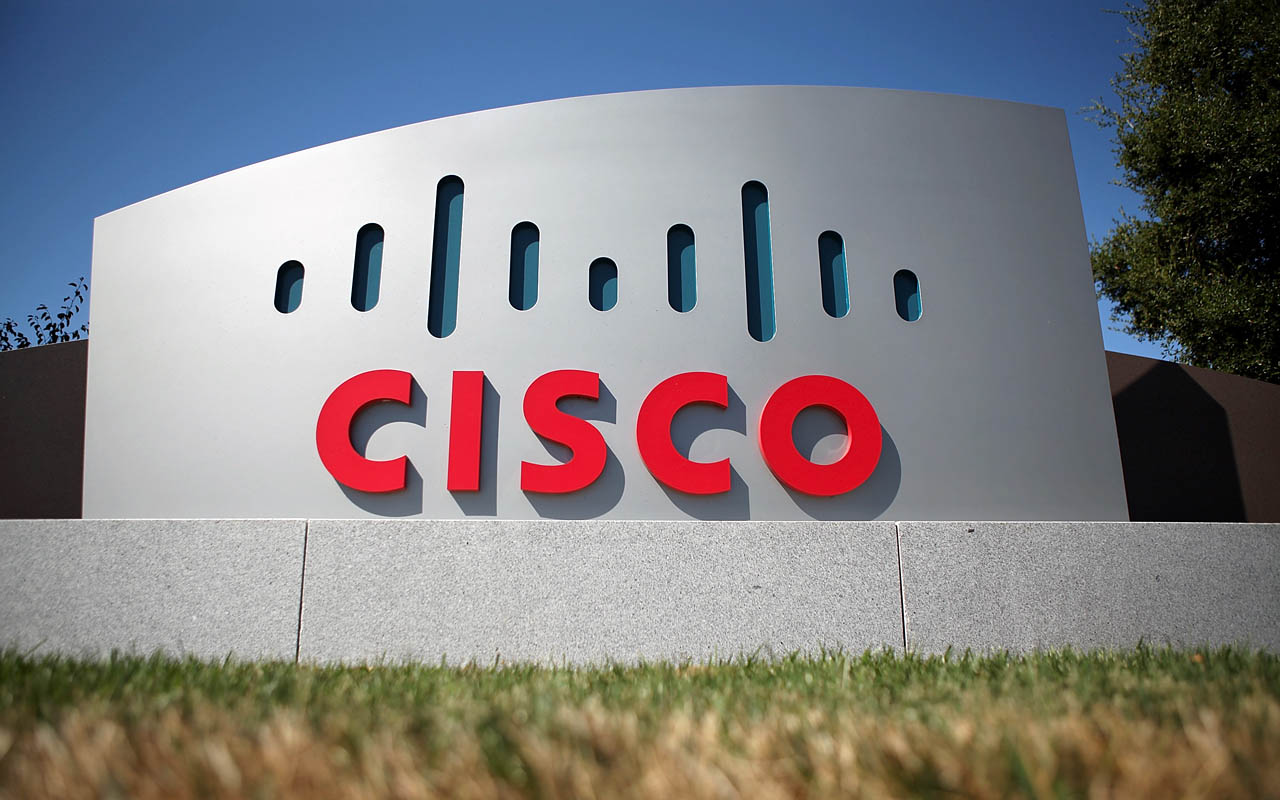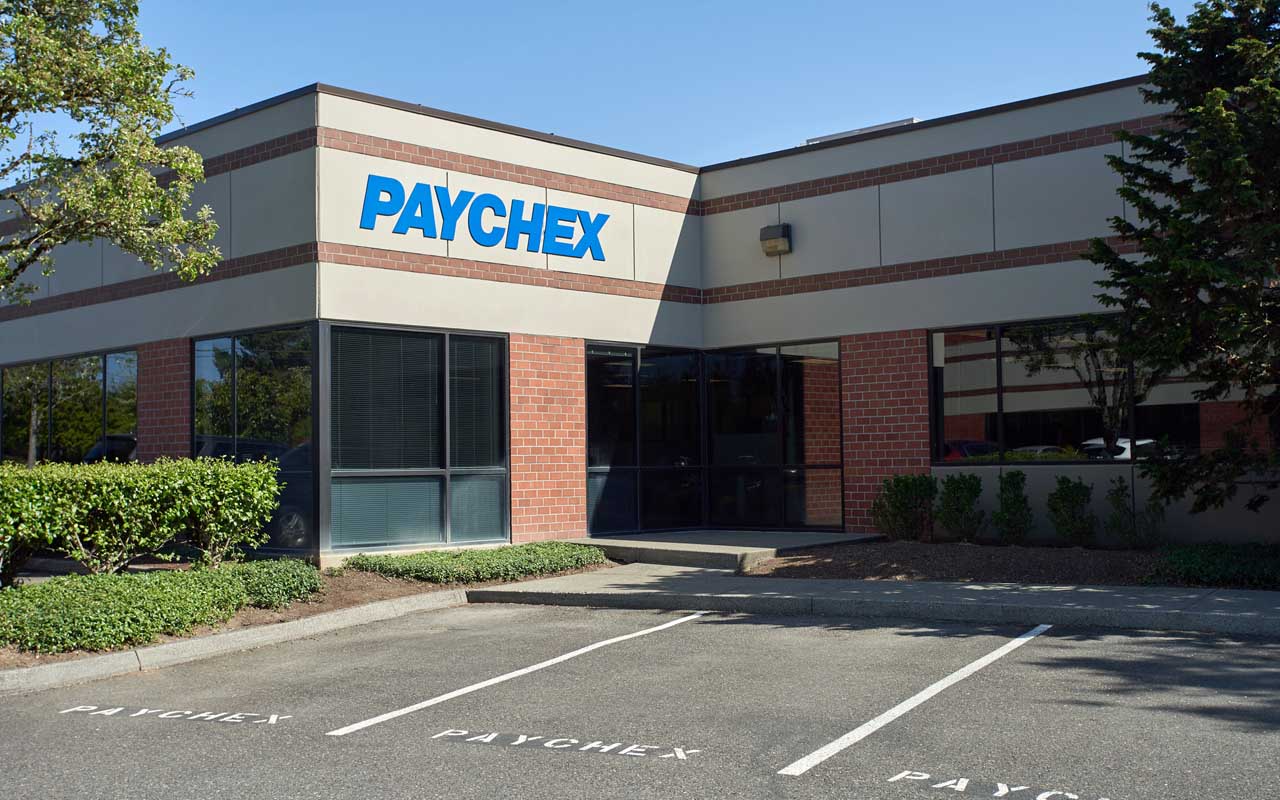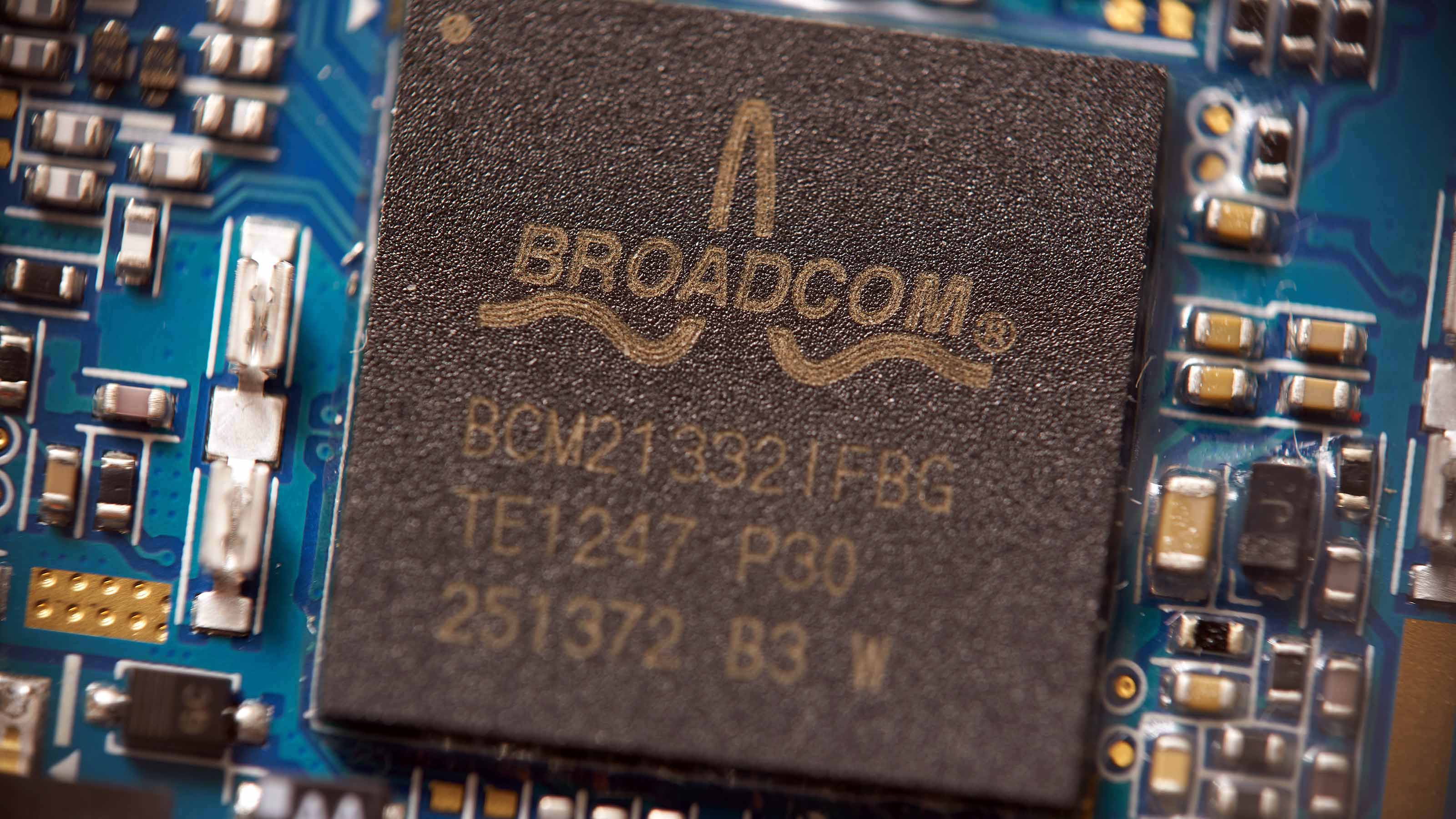7 Double-Threat Dividend Stocks in Tech
These stocks not only yield well better than the S&P 500’s average right now, but they also earn high scores from DIVCON for their dividend health


Profit and prosper with the best of Kiplinger's advice on investing, taxes, retirement, personal finance and much more. Delivered daily. Enter your email in the box and click Sign Me Up.
You are now subscribed
Your newsletter sign-up was successful
Want to add more newsletters?

Delivered daily
Kiplinger Today
Profit and prosper with the best of Kiplinger's advice on investing, taxes, retirement, personal finance and much more delivered daily. Smart money moves start here.

Sent five days a week
Kiplinger A Step Ahead
Get practical help to make better financial decisions in your everyday life, from spending to savings on top deals.

Delivered daily
Kiplinger Closing Bell
Get today's biggest financial and investing headlines delivered to your inbox every day the U.S. stock market is open.

Sent twice a week
Kiplinger Adviser Intel
Financial pros across the country share best practices and fresh tactics to preserve and grow your wealth.

Delivered weekly
Kiplinger Tax Tips
Trim your federal and state tax bills with practical tax-planning and tax-cutting strategies.

Sent twice a week
Kiplinger Retirement Tips
Your twice-a-week guide to planning and enjoying a financially secure and richly rewarding retirement

Sent bimonthly.
Kiplinger Adviser Angle
Insights for advisers, wealth managers and other financial professionals.

Sent twice a week
Kiplinger Investing Weekly
Your twice-a-week roundup of promising stocks, funds, companies and industries you should consider, ones you should avoid, and why.

Sent weekly for six weeks
Kiplinger Invest for Retirement
Your step-by-step six-part series on how to invest for retirement, from devising a successful strategy to exactly which investments to choose.
Income investors typically seek ample yield in their dividend stocks, but dividend sustainability matters every bit as much.
Just ask GameStop (GME) investors, who saw a 19%-plus dividend yield on May 4 turn into a nonexistent yield after the retailer suspended its payout to save cash in an attempt to salvage its troubled business.
A high yield can be a sign of a troubled distribution, but it doesn’t have to be. There are hundreds of stable dividend stocks with above-average yields – including a few in the typically growth-minded technology sector. Better still: These are affordable, sustainable payouts that even have room to grow.
We’ve leaned on the DIVCON system from exchange-traded fund provider Reality Shares to identify seven tech stocks with market-beating dividends that also have a high chance of growing in the future. DIVCON’s methodology evaluates dividend health factors including profits, free cash flow and even bankruptcy risk, then assigns a score between 1 and 5. Low scores (1-2) are a sign of unstable dividends; high scores (4-5) signal healthy dividends that likely will grow in the years ahead.
Here are seven “double threat” dividend stocks in the tech sector. They not only yield well better than the S&P 500’s 1.8% average right now, but they also earn high scores from DIVCON for their dividend health.
Price, market value and yield data is as of June 5. DIVCON scores and measurement data such as earnings growth, levered free cash flow (LFCF)-to-dividend ratio and Altman Z-score is as of June 1. Stocks listed in reverse order of yield. Dividend yields are calculated by annualizing the most recent monthly payout and dividing by the share price. You can view other DIVCON scores on the Reality Shares provider site.

Corning
- Market value: $23.8 billion
- Dividend yield: 2.6%
- DIVCON score: 4
Corning (GLW, $30.36) isn’t like most other tech stocks. Instead of developing apps, creating smartphones or manufacturing components such as semiconductors, Corning specializes in glass. It’s perhaps best-known for its Gorilla Glass, which is used in Samsung, Sony (SNE) and LG phones; Lenovo (LNVGY) and Acer laptops and Garmin (GRMN) smart watches, among others.
The tech stock is having a difficult go in 2019, sitting near breakeven year-to-date. Its difficulties stem from a mixed first-quarter report in April. Earnings surpasses Wall Street estimates, but revenues missed the mark, and the company warned that one of its “fiber-to-the-home” customers made a shift that forced Corning to nudge its full-year sales guidance lower.
The flip side? Display prices, which have long been in decline, are doing so at a slower pace now, and Corning enjoyed unexpectedly rapid growth in environmental technologies. Analysts still see mid-single-digit revenue growth ahead for the next two years, and low-teens profit expansion during that span.
Its dividend, however, looks plenty healthy. Corning earlier this year announced an 11% hike to the payout, which has grown on an annual basis every year since 2011. It uses just 30% of its earnings to fund the dividend, which is extremely healthy and offers plenty more room for increases. Levered free cash flow (how much cash companies have left over after they meet all their obligations) is 180% of what it needs to pay its dividend – also healthy.
For these reasons, as well as an above-average yield and strong earnings growth, GLW earns a DIVCON 4 score that indicates Corning is a healthy dividend grower.

Cisco Systems
- Market value: $234.4 billion
- Dividend yield: 2.6%
- DIVCON score: 5
Cisco Systems (CSCO, $54.75) is one of the biggest names in networks and communications. While switches and routers have long been the bulk of its business, it has widened its offerings to attack opportunities in mobility, the Internet of Things (IoT) and cybersecurity.
Cisco has received attention of late for its treasured status among tech stocks that look more insulated against a U.S.-China trade war than others. CEO Chuck Robbins said during the most recent quarterly earnings conference call that “we see very minimal impact (from tariffs on Chinese imports) at this point … and it is absolutely baked into our guide going forward.”
That mid-May proclamation came alongside fiscal third-quarter profits that surprised to the upside, as well as full-year revenue guidance that exceeded analysts’ models. CSCO shares have weathered May better than the average tech stock, and have gained 26% year-to-date, easily besting the tech-heavy Nasdaq Composite’s still-robust 14% gains.
Cisco’s dividend is young, at just 8 years of age, but it’s substantial and stout enough to warrant DIVCON’s top score of 5. Like Corning, Cisco’s LFCF/dividend ratio of 180% provides plenty of room for expansion, as does a 47% earnings payout ratio. Its Altman Z-score – which uses five factors to measure a company’s credit strength – is 4.34 (any score above 3 indicates a low likelihood of bankruptcy). Cisco also spends 3.8 times more money on repurchases than dividends, which is important because it means even in tougher times, management could reallocate cash it typically spends on repurchases to fund or even grow CSCO’s payout.

Paychex
- Market value: $31.1 billion
- Dividend yield: 2.9%
- DIVCON score: 4
It doesn’t take much to figure out that Paychex (PAYX, $86.43) provides payroll services, but it also offers human resources, benefits, hiring and other solutions.
Paychex also is this list’s best-performing tech stock in 2019, already up 33% through June 5, albeit to very little fanfare. The company may be woven into the thread of the American workforce – PAYX claims it pays one in every 12 U.S. private-sector employees – but it does so while quietly humming in the background, so it tends to get little media coverage.
That performance has also stunned most analysts, who lean very bearish. Of the 19 analysts covering PAYX, 14 deem it a “Hold,” three say it’s a “Sell” or “Strong Sell,” and just two believe it’s a “Buy.” Credit Suisse’s Kevin McVeigh has gotten the stock right, however, upgrading it to “Outperform” (equivalent of “Buy”) last year as cyclical factors seemed to point in payroll companies’ favor.
It also surpassed analysts’ expectations for its most recent quarterly financial results, beating the Street with $1.1 billion in revenues (up 14% year-over-year).
Paychex kept the pedal down on its dividend, increasing it 11% in May to 62 cents per share. Its current dividend-growth streak dates back to 2011, though the payout itself goes back more than two decades.
PAYX is a DIVCON 4 stock thanks to the above-average yield, 240% LFCF/dividend ratio and safe Altman Z-score of 3.5. The fact that Wall Street expects Paychex’s profits to grow just less than 10% annually on average over the next five years also bodes well for the dividend’s sustainability.

AVX Corp.
- Market value: $2.6 billion
- Dividend yield: 3.0%
- DIVCON score: 4
AVX Corp. (AVX, $15.50) is an under-the-radar mid-cap stock (companies between $2 billion and $10 billion in market value) that manufactures a wide array of component devices. Its Ethertronics smart antennas, for instance, can be found in products such as laptops and smart watches, while its AB Elektronik sensors are used across the automotive industry.
Essentially, it’s the “tech behind the tech.”
Dividend health is strong. AVX’s 3% yield is backed by very strong earnings growth and requires less than 30% of the company’s profits at current levels. Bloomberg’s Dividend Health rating – another aspect that DIVCON monitors – is a healthy 40, and a very high Altman Z-score of 7.3 indicates there’s essentially no risk of bankruptcy in the near future.
However, while AVX has been steadily growing sales for years now, the company complained of soft orders in its most recent quarter and said revenues should decline during the period ending in June, too. Asia has been a concern for a couple quarters now, too. Shares tell the tale: AVX has gained less than 2% in more than five months. The “pros” don’t have much to say, either: Just two analysts cover this stock, and both have remained mum on it for months.
The dividend is attractive, but price-appreciation prospects look dull at the moment. A better global-growth environment would do AVX a world of good.

NetApp
- Market value: $15.1 billion
- Dividend yield: 3.1%
- DIVCON score: 5
If nothing else, NetApp (NTAP, $61.13) is a lot cheaper than it was a few weeks ago.
NetApp – which offers data storage services as well as data management – is reeling. Shares have shed 15% since May 1 thanks to a lousy fiscal Q4 report. Earnings declined and missed estimates. Revenues came up short. Q1 profit estimates came in under analysts’ targets.
The stock plunge is earned, but analysts – who did lower their price targets following the announcement – still remain cautiously optimistic about NetApp’s prospects going forward. Several analysts pointed to tough year-over-year comparisons, including Credit Suisse’s Matthew Cabral, who kept his “Outperform” rating on NTAP shares. Yet he believes NetApp will continue to get gain share and praises the company’s ability to keep costs low.
Bank of America’s Wamsi Mohan, who rates the stock a “Buy,” also lauds NetApp’s operational controls, as well as the company’s ability to generate cash. Indeed, NetApp did have one bright point in its rough report: A 20% dividend hike to 48 cents per share, with plenty more room to grow given that levered free cash flow is well more than double what NTAP needs to meet its quarterly obligation to shareholders.
That’s one reason behind the stock’s DIVCON 5 score. Its higher-than-average yield, strong earnings expansion, and quality Altman Z and Bloomberg Dividend Health scores also help paint a picture of a safe dividend with high growth potential.

Western Union
- Market value: $8.5 billion
- Dividend yield: 4.0%
- DIVCON score: 4
Western Union (WU, $19.85) is one of the oldest and most hallowed names in all of technology. The company was founded in 1851 as a telegraph company, but since then has folded in services ranging anywhere from commercial intercity microwave communications to singing telegrams (no joke).
But it wasn’t until the 1980s that Western Union evolved into the company we know it today: a money transfer business that some of us still remember as “the fastest way to send money worldwide.”
If you’re looking for stable dividend stocks, WU fits the bill. Western Union’s primary business is consistent enough to fund a healthy, and healthy yielding, quarterly dividend that has been growing every year since 2011. That includes a 5% hike authorized earlier this year. The 20-cent quarterly payout comes to roughly 40% of profits, and just a third of levered free cash flow. That, and room to pull cash from repurchases (WU spends 1.7 times as much on stock buybacks as it does dividends), leads to a promising DIVCON score of 4.
Actual business growth, however, remains elusive.
Revenues have stagnated for years. Profits, which suffered in 2016 and 2017, rebounded sharply … but only back to 2015 levels. The company has few avenues for growth and faces pressure from traditional rivals such as Moneygram as well as digital foes such as PayPal (PYPL).
Western Union is shrinking, too, announcing in February that it would sell off its U.S. bill pay business, Speedpay. BTIG analyst Mark Palmer – one of just four “Buy” ratings on WU, versus 10 “Holds” and eight “Sells” – sees a silver lining in the sale, calling it “addition by subtraction” because of its drag on the company’s overall operational performance. Regardless, WU looks like an income-first holding.

Broadcom
- Market value: $105.2 billion
- Dividend yield: 4.0%
- DIVCON score: 5
As China trade rhetoric goes, so goes Broadcom (AVGO, $265.72).
Broadcom designs and manufactures a wide array of semiconductors and other products that are found across the technology spectrum. Broadcom has a presence in everything from broadband modems and Bluetooth technology to GPS to optical sensors.
Generally speaking, Broadcom’s place in so many vital and emerging technologies put it on great footing to grow in the future. The analyst community loves it, with all but two of the 29 analysts covering AVGO believing it’s worthy of your investment dollar.
But Chinese business accounted for 54% of its revenues in 2018. That exposure is hanging like a stone around Broadcom’s neck in the midst of America’s escalating tariff volleys with China. AVGO shares are off 15% since May 1 thanks in large part to devolving trade talks. It also has taken a hit thanks to a U.S. trade ban on Huawei; Broadcom was forced to stop selling its products to the large Chinese smartphone maker.
The “Buy”-minded analyst community seems to be resetting its expectations while remaining optimistic long-term, however. Piper Jaffray’s Harsh Kumar thinks the company will have to lower full-year guidance (possibly as part of its next earnings release, due out June 13). But he thinks 5G will be a “sizeable” driver for Broadcom and still has an “Overweight” rating (equivalent of “Buy”) on AVGO shares.
The near-term outlook might be shaky, but the dividend is not. AVGO has earned DIVCON’s top score because of its high safety and likelihood to grow. Broadcom ratcheted up its payout by more than 50% last year, to $2.65 per share. The company’s profits cover the dividend nearly twice over, and its levered free cash flow is almost 10 times what it needs to fund the distribution.
Broadcom also looks fit when you look at its Altman Z-score (4.2) and earnings growth, which analysts expect to continue climbing at a healthy clip of more than 15% annually through 2024.
Profit and prosper with the best of Kiplinger's advice on investing, taxes, retirement, personal finance and much more. Delivered daily. Enter your email in the box and click Sign Me Up.

Eric Ervin founded Reality Shares, a firm known for ETF industry innovation. He led the launch of investment analytics tools, including Blockchain Score™, a blockchain company evaluation system; DIVCON®, a dividend health analysis system; and the Guard Indicator, a directional market indicator. These tools were designed to help investors access innovative investment strategies as well as provide alternative dividend investment solutions to manage risk.
-
 5 Vince Lombardi Quotes Retirees Should Live By
5 Vince Lombardi Quotes Retirees Should Live ByThe iconic football coach's philosophy can help retirees win at the game of life.
-
 The $200,000 Olympic 'Pension' is a Retirement Game-Changer for Team USA
The $200,000 Olympic 'Pension' is a Retirement Game-Changer for Team USAThe donation by financier Ross Stevens is meant to be a "retirement program" for Team USA Olympic and Paralympic athletes.
-
 10 Cheapest Places to Live in Colorado
10 Cheapest Places to Live in ColoradoProperty Tax Looking for a cozy cabin near the slopes? These Colorado counties combine reasonable house prices with the state's lowest property tax bills.
-
 Dow Adds 1,206 Points to Top 50,000: Stock Market Today
Dow Adds 1,206 Points to Top 50,000: Stock Market TodayThe S&P 500 and Nasdaq also had strong finishes to a volatile week, with beaten-down tech stocks outperforming.
-
 Dow Leads in Mixed Session on Amgen Earnings: Stock Market Today
Dow Leads in Mixed Session on Amgen Earnings: Stock Market TodayThe rest of Wall Street struggled as Advanced Micro Devices earnings caused a chip-stock sell-off.
-
 Stocks See First Back-to-Back Losses of 2026: Stock Market Today
Stocks See First Back-to-Back Losses of 2026: Stock Market TodayRising geopolitical worries and a continued sell off in financial stocks kept pressure on the main indexes on Wednesday.
-
 Nasdaq Sinks 418 Points as Tech Chills: Stock Market Today
Nasdaq Sinks 418 Points as Tech Chills: Stock Market TodayInvestors, traders and speculators are growing cooler to the AI revolution as winter approaches.
-
 Stocks Struggle Ahead of November Jobs Report: Stock Market Today
Stocks Struggle Ahead of November Jobs Report: Stock Market TodayOracle and Broadcom continued to fall, while market participants looked ahead to Tuesday's jobs report.
-
 AI Stocks Lead Nasdaq's 398-Point Nosedive: Stock Market Today
AI Stocks Lead Nasdaq's 398-Point Nosedive: Stock Market TodayThe major stock market indexes do not yet reflect the bullish tendencies of sector rotation and broadening participation.
-
 Dow Adds 646 Points, Hits New Highs: Stock Market Today
Dow Adds 646 Points, Hits New Highs: Stock Market TodayIt was "boom" for the Dow but "bust" for the Nasdaq following a December Fed meeting that was less hawkish than expected.
-
 What Fed Rate Cuts Mean For Fixed-Income Investors
What Fed Rate Cuts Mean For Fixed-Income InvestorsThe Fed's rate-cutting campaign has the fixed-income market set for an encore of Q4 2024.
